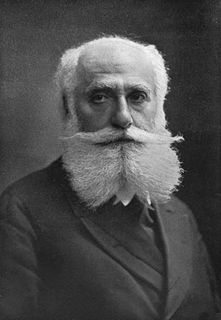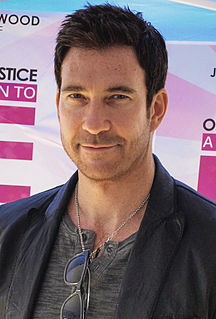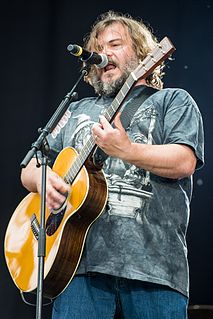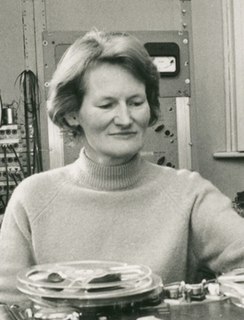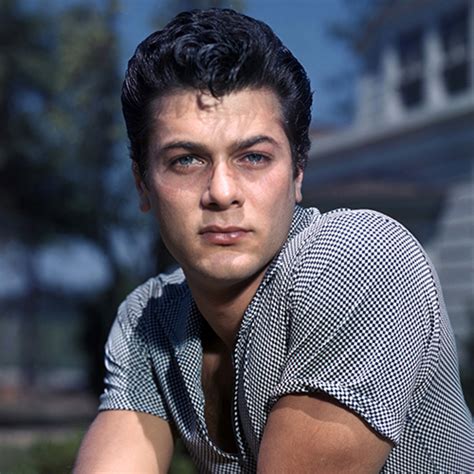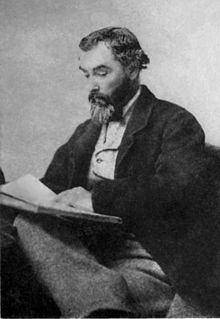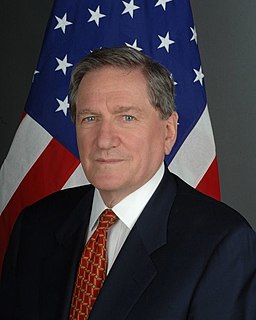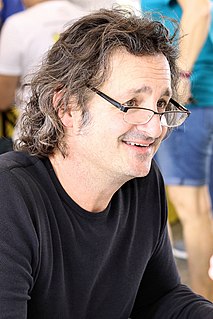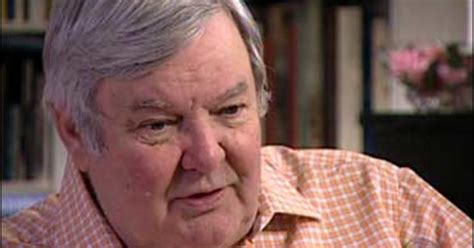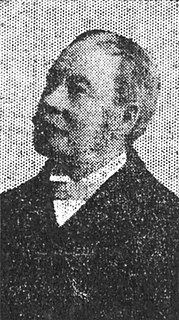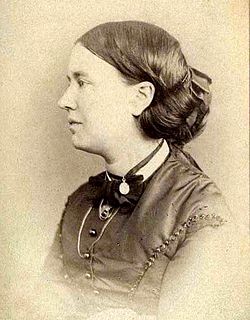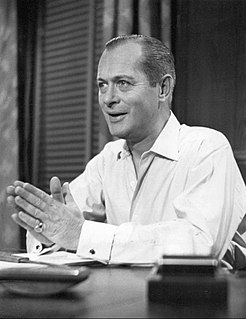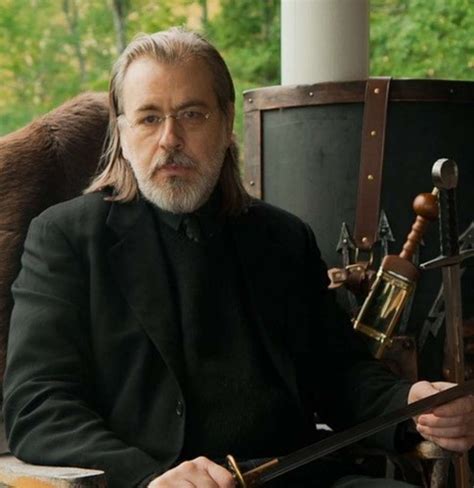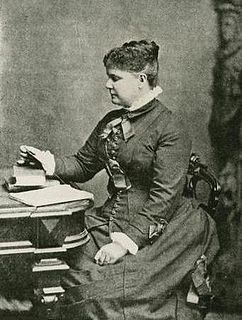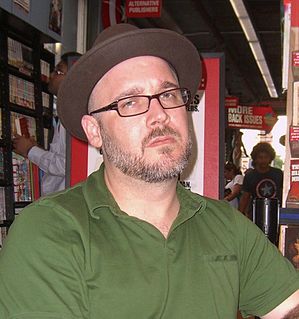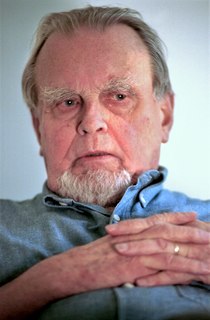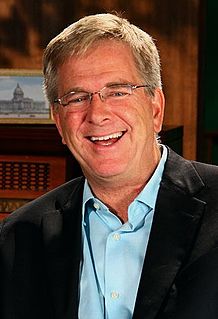Top 257 Echoes Quotes & Sayings - Page 4
Explore popular Echoes quotes.
Last updated on December 4, 2024.
Far from affording artists continuous inspiration, mass-media sources for art have become a dead end. They have combined with the abstractness of institutional art teaching to produce a fine-arts culture given over to information and not experience. This faithfully echoes the drain of concreteness from modern existence- the reign of mere unassimilated data instead of events that gain meaning by being absorbed into the fabric of imaginative life.
So I should be aware of the dangers of self-consciousness, but at the same time, I’ll be plowing through the fog of all these echoes, plowing through mixed metaphors, noise, and will try to show the core, which is still there, as a core, and is valid, despite the fog. The core is the core is the core. There is always the core, that can’t be articulated. Only caricatured.
Words, English words, are full of echoes, of memories, of associations. They have been out and about, on people's lips, in their houses, in the streets, in the fields, for so many centuries. And that is one of the chief difficulties in writing them today -- that they are stored with other meanings, with other memories, and they have contracted so many famous marriages in the past.
We find collected in this book [The Bible] the superstitious beliefs of the ancient inhabitants of Palestine, with indistinct echoes of Indian and Persian fables, mistaken imitation of Egyptian theories and customs, historical chronicles as dry as they are unreliable and miscellaneous poems, amatory, human and Jewish-national, which is rarely distinguished by beauties of the highest order but frequently by superfluity of expression, coarseness, bad taste, and genuine Oriental sensuality.
I believe that Ryan Murphy is a genius. His instincts remind me of Andy Warhol. I recently went to the Warhol museum in Pittsburgh, and you can see a lot of echoes of Andy in Ryan’s work. Like Andy, Ryan’s finger is so on the pulse of culture that he’s ahead of culture. Their aesthetic and their vision of the world are very similar.
Where can we find greater structural clarity than in the wooden buildings of the old. Where else can we find such unity of material, construction and form? Here the wisdom of whole generations is stored. What feelings for material and what power of expression there is in these buildings! What warmth and beauty they have! They seem to be echoes of old songs.
When the railroad trains moaned, and river-winds blew, bringing echoes through the vale, it was as if a wild hum of voices, the dear voices of everybody he had known, were crying: "Peter, Peter! Where are you going, Peter?" And a big soft gust of rain came down. He put up the collar of his jacket, and bowed his head, and hurried along.
The thing is, the kids always rebel against what the parents try to push on them so I'm going to pretend like I don't want my son to hear the rock. I'm going to listen to it only in my private chambers. He'll hear echoes of it and say: "What was that you were listening to papa?" And I'll say: "Nothing son, you're not ready."
We measure our presence in generations; we cannot dig down ten thousand years and find our bones. Our arrival is scribed upon the line of history; it does not drift upon the winds of story, or float upon the shrouds of myth. We are still explorers and discoverers, seeking meaning through movement and examination. But we are coming to a time of listening. Our sweat and breath are now upon this land. Voices rise up, and we begin to hear the echoes in the stones.
All the things that have ever deeply possessed your soul have been but hints of it, tantalizing glimpses, promises never quite fulfilled, echoes that died away just as they caught your ear. But if it should really become manifest - if there ever came an echo that did not die away but swelled into the sound itself - you would know it. Beyond all possibility of doubt you would say 'Here at last is the thing I was made for.'
I think when a society has such a profoundly dark and awful evil such as slavery in its history, then it leaves scars that are very, very deep. And unless we collectively address them and really put our effort to healing them, they'll perpetuate. The United States of America are still suffering from the echoes of slavery. I think we're still reeling from all the pain that is a result of it, and that's a reality.
You take a sound, any sound, record it and then change it's nature by a multiplicity of operations. You record it at different speeds; you play it backwards; you add it to itself over and over again. You adjust filters, echoes, acoustic qualities…you produce a vast and subtle symphony. It's a sort of modern magic. We think there's something in it. Some musicians believe it may become an art form in its own right.
On rare occasions there comes along a profound original, an odd little book that appears out of nowhere, from the pen of some obscure storyteller, and once you have read it, you will never go completely back to where you were before. The kind of book you may hesitate to lend for fear you might miss its company. The kind of book that echoes from the heart of some ancient knowing, and whispers from time's forgotten cave that life may be more than it seems, and less.
I lately met with an old volume from a London bookshop, containing the Greek Minor Poets, and it was a pleasure to read once moreonly the words Orpheus, Linus, Musæus,--those faint poetic sounds and echoes of a name, dying away on the ears of us modern men; and those hardly more substantial sounds, Mimnermus, Ibycus, Alcæus, Stesichorus, Menander. They lived not in vain. We can converse with these bodiless fames without reserve or personality.
Music's always part of my writing. I think all art is interconnected. You can't create or experience one without its influences bleeding into another. In my writing, music's mostly something that feeds my inspiration and mood while I'm writing, but it's also taught me how to score scenes and even novels. The rise and fall of the storyline echoes the flow of a good piece of music.
Strauss admits to being obsessed by his mother's rejection, and with the resultant rents in self-esteem. The Game echoes with disturbingly abusive comments leveled at his adolescent self, a self he feels was unacceptable. With bravado, he expresses regret that he didn't rack up more sexual conquests in his teens; in person, he expresses a truer regret that he was intimidated by life itself.
Art is universal. It unites mankind in common brotherhood. As a missionary of civilization, its message is both to heart and mind. Distinctions of tongue or boundary lines disappear before the power of truths, which, like the rainbow, charm by the beauty of variegated hues, or, combined with light, illuminate the universe. Moreover, art is the connecting link in the chain of great minds. Through its language, thought appeals to thought, and sympathy echoes feeling.
MEMRI allows an audience far beyond the Arabic-speaking world to observe the wide variety of Arab voices speaking through the media, schoolbooks, and pulpits to their own people. What one hears is often astonishing, sometimes frightening, and always important. Most importantly, it includes the newly-emerging liberal voices of reform and hope, as well as disturbing echoes of ancient hatreds. Without the valuable research of MEMRI, the non-Arabic speaking world would not have this indispensable window.
I love this book! Cathy Malkasian's Percy Gloom swirls with echoes of cartoon landscapes from the past and present. You can almost hear Percy Gloom's meek, docile little voice. Her writing is so full of wit and charm that we, like the title character, walk dutifully to the edge and fall in. And like Percy, we are rewarded equally with night terrors and secret treasures.
To seek in the great accumulation of the already-said the text that resembles "in advance" a later text, to ransack history in order to rediscover the play of anticipations or echoes, to go right back to the first seeds or to go forward to the last traces, to reveal in a work its fidelity to tradition or its irreducible uniqueness, to raise or lower its stock of originality, to say that the Port -Royal grammarians invented nothing, or to discover that Cuvier had more predecessors than one thought, these are harmless enough amusements for historians who refuse to grow up.
A broken heart in real life isn't half as dreadful as it is in books. It's a good deal like a bad tooth, though you won't think THAT a very romantic simile. It takes spells of aching and gives you a sleepless night now and then, but between times it lets you enjoy life and dreams and echoes and peanut candy as if there were nothing the matter with it.
On the terrace of the Pepiniere, the 150 pupils of the Institut Chemique talk chemistry as they leave the auditoria and the laboratory. The echoes of the magnificent public garden of the city of Nancy make the words reverberate; coupling, condensation, grignardization. Moreover, their clothes stay impregnated with strong and characteristic odours; we follow the initiates of Hermes by their scent. In such an environment, how is it possible not to be productive?
Behind them in the garden the little stone house brooded among the shadows. It was lonely but not forsaken. It had not yet done with dreams and laughter and the joy of life; there were to be future summers for the little stone house; meanwhile, it could wait. And over the river in purple durance the echoes bided their time.
In 1952, Muddy cut the song 'Rollin' Stone.' It was a nationwide success, and the song echoes down through rock n' roll history. Bob Dylan cut a tribute by the same name, an English band decided to call themselves the Rolling Stones, and the magazine that first embraced music as a serious cultural phenomenon was itself called 'Rolling Stone.'
Could Afghanistan become another Vietnam? Is the United States facing another stalemate on the other side of the world? Premature the questions may be, three weeks after the fighting began. Unreasonable they are not, given the scars scoured into the national psyche by defeat in Southeast Asia. For all the differences between the two conflicts, and there are many, echoes of Vietnam are unavoidable.
Columbus was an Abraham, for he went out not knowing whither he went. Columbus was a Moses, for he endured as seeing Him who is invisible. Only the man of faith is the man of power. Only he who can see the invisible can do the impossible. God grant that to-day in that bark we may be wafted by God's blessing, and may land at last on the shores of Heaven, where we shall sing a sweeter Te Deum than that which awoke the echoes on the soil of virgin America, or those amid the splendors of the court at Barcelona.
Mid-summer ... when the alchemy of Nature transmutes the sylvan landscape to one vivid and almost homogeneous mass of green; when the senses are well-nigh intoxicated with the surging seas of moist verdure and the subtly indefinable odours of the soil and the vegetation. In such surroundings the mind loses its perspective; time and space become trivial and unreal, and echoes of a forgotten prehistoric past beat insistently upon the enthralled consciousness.
All the different ways God has chosen to display his glory in creation and redemption seem to reach their culmination in the praises of his redeemed people. God governs the world with glory precisely that he might be admired, marvelled at, exalted and praised. The climax of his happiness is the delight he takes in the echoes of his excellence in the praises of the saints.
Love and knowledge, so far as they were possible, led upward toward the heavens. But always pity brought me back to earth. Echoes of cries of pain reverberate in my heart. Children in famine, victims tortured by oppressors, helpless old people a burden to their sons, and the whole world of loneliness, poverty, and pain make a mockery of what human life should be. I long to alleviate this evil, but I cannot, and I too suffer.
I've been reading Peter Straub since I was a teenager, and his work is hardwired into my brain. A Dark Matter contains echoes of all that has been great about Straub's previous work and builds upon it. This Rashomon-like tale is as spooky and frightening as anything he has written, but it's also an intense and moving celebration of love. Out of the darkness comes, ultimately, a surprising and haunting sense of joy.
The Three Wiseman: The weather has been awful, The countryside is dreary, Marsh, jungle, rock; and echoes mock, Calling our hope unlawful; But a silly song can help along Yours ever and sincerely: At least we know for certain that we are three old sinners, that this journey is much too long, that we want our dinners, and miss our wives, our books, our dogs, but have only the vaguest idea why we are what we are. To discover how to be human now Is the reason we follow this star.
Oh! now to be alone, on some grand height, Where heaven’s black curtains shadow all the sight, And watch the swollen clouds their bosom clash, While fleet and far the living lightnings flash... And see the fiery arrows fall and rise, In dizzy chase along the rattling skies,— How stirs the spirit while the echoes roll, And God, in thunder, rocks from pole to pole!
Jazz is the music of the body. The breath comes through brass. It is the body's breath, and the strings' wails and moans are echoes of the body's music. It is the body's vibrations which ripple from the fingers. And the mystery of the withheld theme, known to jazz musicians alone, is like the mystery of our secret life. We give to others only peripheral improvisations.
Bill Monroe spoke of bringing 'ancient tones' into his music with echoes of British and Irish fiddle and bagpipe music, while also delving deeply into American blues, gospel, folk hymnody, and hill country dance music. To that gumbo, he added the invigorating rhythms and harmonies of hot jazz. It was a new kind of American music, named in honor of his band The Blue Grass Boys to be known, simply, as bluegrass.
Imagine, [Kriezler] said, that you enter a large, somewhat crumbling hall that echoes with the sounds of people mumbling and talking repetitively to themselves. All around you these people fall into prostrate positions, some of them weeping. Where are you? Sara’s answer was immediate: in an asylum. Perhaps, Kreizler answered, but you could also be in a church. In the one place the behavior would be considered mad; in the other, not only sane, but as respectable as any human activity can be.
When the real history of mankind is fully disclosed, will it feature the echoes of gunfire or the shaping sound of lullabies? The great armistices made by military men or the peacemaking of women in homes and in neighborhoods? Will what happened in cradles and kitchens prove to be more controlling than what happened in congresses? When the surf of the centuries has made the great pyramids so much sand, the everlasting family will still be standing, because it is a celestial institution, formed outside telestial time.
My feelings are not God. God is God. My feelings do not define truth. God’s word defines truth. My feelings are echoes and responses to what my mind perceives. And sometimes - many times - my feelings are out of sync with the truth. When that happens - and it happens every day in some measure - I try not to bend the truth to justify my imperfect feelings, but rather, I plead with God: Purify my perceptions of your truth and transform my feelings so that they are in sync with the truth.
For a moment everything was clear, and when that happens you see that the world is barely there at all. Don't we all secretly know this? It's a perfectly balanced mechanism of shouts and echoes pretending to be wheels and cogs, a dreamclock chiming beneath a mystery-glass we call life. Behind it? Below it and around it? Chaos, storms. Men with hammers, men with knives, men with guns. Women who twist what they cannot dominate and belittle what they cannot understand. A universe of horror and loss surrounding a single lighted stage where mortals dance in defiance of the dark.
The commandment to honor our parents echoes the sacred spirit of family relationships in which-at their best-we have sublime expressions of heavenly love and care for one another. We sense the importance of these relationships when we realize that our greatest expressions of joy or pain in mortality come from the members of our families
With mimicry, with praises, with echoes, or with answers, the poets have all but outsung the bell. The inarticulate bell has found too much interpretation, too many rhymes professing to close with her inaccessible utterance, and to agree with her remote tongue. The bell, like the bird, is a musician pestered with literature.
I think I've indulged in a pathological, chronic nostalgia over the years, which I've traced back to my childhood. I was the last of four children, born well after the other three, so I was left on my own in a big, quiet house where most of the people had left, and even the echoes of a happy family had all died out.
The more I think about myself, the more I'm persuaded that, as a person, I really don't exist. That is one of the reasons why I can't believe in any orthodox religion: I cannot believe in my own soul. No, I am a chemical compound, conditioned by environment and education. My "character" is simply a repertoire of acquired tricks, my conversation a repertoire of adaptations and echoes, my "feelings" are dictated by purely physical, external stimuli.
A Concordance of Leaves is an epic poem of the indomitable yet fragile human spirit. Philip Metres brings Palestine and Palestinians into English with rare luminosity. One feels echoes of Oppen's succinct tenderness in the depiction of the numerous characters of this work. Without other, there is no self. And that other is the stranger who must be loved. Concordance is, after all, a wedding poem-leaves and pages in search of a certain passage toward harmony.
As the days go on toward July, the earth becomes dry and all the flowers begin to thirst for moisture. Then from the hillside, some warm, still evening, the sweet rain-song of the robin echoes clear, and next day we wake up to a dim morning; soft flecks of cloud bar the sun's way, fleecy vapors steal across the sky, the southwest wind blows lightly, rippling the water into little waves that murmur melodiously as they kiss the shore.
The rhythm of walking generates a kind of rhythm of thinking, and the passage through a landscape echoes or stimulates the passage through a series of thoughts. The creates an odd consonance between
internal and external passage, one that suggests that the mind is also a landscape of sorts and that walking is one way to traverse it. A new thought often seems like a feature of the landscape that was
there all along, as though thinking were traveling rather than making.
The political vibe of late-'40s Hollywood through the mid-'50s is something we're seeing a lot of echoes of right now, and in a scary way, where I'm wishing for an Edward R. Murrow to stand up and start somehow calling people on stuff. But as far as the way the industry works, I feel like we're in a place where you see companies slowly moving back to only doing their own stuff.
Surfing is sensual. It's a real-time engagement with the forces of nature, which happen to be echoes of the past (which after all, is all a wave really is). Briefly we defy gravity and ride the energy of storms from elsewhere. We are intensely alone as we do it and yet completely swallowed by something larger that enforces a sense of perspective and connectedness to the natural world. It's an experience we yearn to repeat so we go searching for it again and again and we spend years sitting in the water waiting for these radiating lines to come in across the event horizon.
New Orleans had a great tradition of celebration. Opera, military marching bands, folk music, the blues, different types of church music, ragtime, echoes of traditional African drumming, and all of the dance styles that went with this music could be heard and seen throughout the city. When all of these kinds of music blended into one, jazz was born.
Leaves glowing in the sun, zealous hum of bumblebees, From afar, from somewhere beyond the river, echoes of lingering voices And the unhurried sounds of a hammer gave joy not only to me. Before the five senses were opened, and earlier than any beginning They waited, ready, for all those who would call themselves mortals, So that they might praise, as I do, life, that is, happiness.
By day, Venice is a city of museums and churches, packed with great art. Linger over lunch, trying to crack a crustacean with weird legs and antennae. At night, when the hordes of day-trippers have gone, another Venice appears. Dance across a floodlit square. Glide in a gondola through quiet canals while music echoes across the water. Pretend it's Carnevale time, don a mask - or just a fresh shirt - and become someone else for a night.
I believe that Ryan Murphy is a genius. His instincts remind me of Andy Warhol. I recently went to the Warhol museum in Pittsburgh, and you can see a lot of echoes of Andy in Ryan's work. Like Andy, Ryan's finger is so on the pulse of culture that he's ahead of culture. Their aesthetic and their vision of the world are very similar.
Water, wind and birdsong were the echoes in this quiet place of a great chiming symphony that was surging around the world. Knee-deep in grasses and moon daisies, Stella stood and listened, swaying a little as the flowers and trees were swaying, her spirit voice singing loudly, though her lips were still, and every pulse in her body beating its hammer strokes in time to the song.



